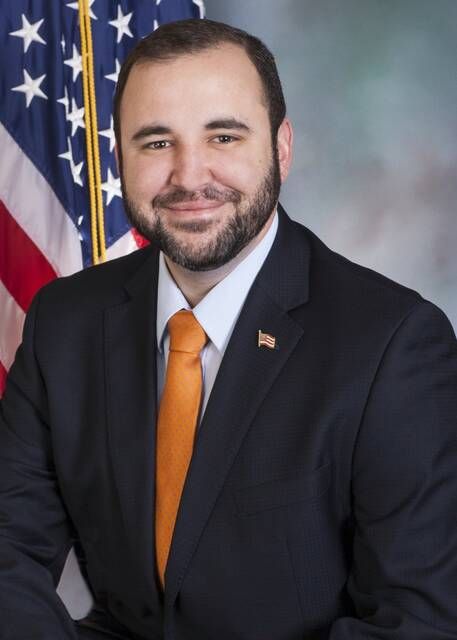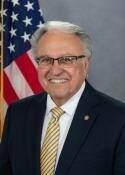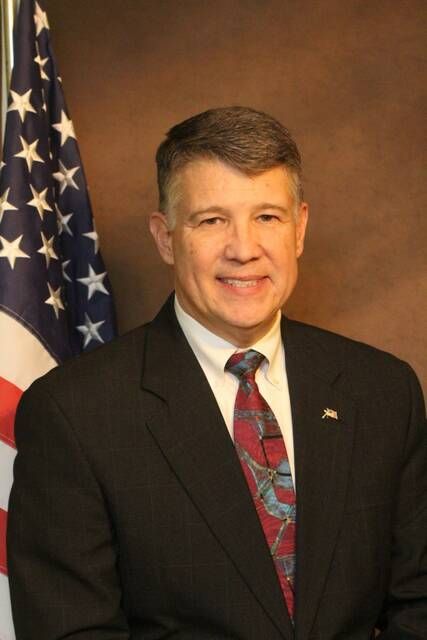Click here to subscribe today or Login.
In the hours following Gov. Josh Shapiro’s unveiling of his first state budget proposal on Tuesday, several members of Northeastern Pennsylvania’s delegation in the state legislature weighed in with their thoughts on the plan.
“During today’s budget address, Governor Shapiro identified several priority issues that are important to residents of the 20th Senatorial District — helping individuals and families keep more of their hard-earned money, creating workforce development and job opportunities, ensuring safe communities, expanding rural access to health care and mental health services, investing in roads and bridges, high speed internet, and other infrastructure improvements,” reads a statement issued by State Sen. Lisa Baker.
Baker, R-Dallas, highlighted in her remarks several key points raised in Shapiro’s proposal that aligned with initatives Baker has pushed in her time in the state Senate.
“These are issues that also align with initiatives I am pushing such as ensuring seniors continue to qualify for much-needed state support like the Property Tax Rent Rebate Program and expanding community and school based behavioral health services,” Baker said.
“Governor Shapiro’s focus on indigent defense, probation and parole, and other criminal justice reforms was of particular interest, as these are issues the Senate Judiciary Committee has advanced. His continued commitment to additional state park funding was also encouraging, following our success in establishing the new Vosberg Neck State Park last year.”
Baker also noted that this budget would increase General Fund spending by more than $1.3 billion from the current fiscal year’s approved budget, and warned of overspending.
“Pennsylvania’s finances are in good shape at the moment, but expert analyses indicate trouble in the years ahead if there is overspending and not enough attention paid to economic growth,” Baker said. “Inflation is still running too high and hurting too many Pennsylvania families. We cannot approve a state spending number that will fuel further inflation or draw heavily against our Rainy Day Fund.”
Baker’s full comments can be read on her website, senatorbaker.com.
Rep. Cabell’s statement
State Rep. Mike Cabell, R-Butler Township, raised concerns with the proposed budget in a statement released Tuesday.
Newly appointed to the state House Appropriations Committee, Cabell issued the following remarks:
“The governor’s budget proposal is a mixed bag but a good starting point. I agree with the spending increases he wants to include for career and technical education, workforce development, mental health care, law enforcement and our seniors.
“However, I have serious concerns with the amount of new spending and new programs that would deplete the state’s reserves within the next several years. The Legislature worked hard to build up billions of dollars in revenue savings, which provides a needed safety net to stave off future tax increases or deal with state emergencies.
“The governor’s apparent plan to keep Pennsylvania in the Regional Greenhouse Gas Initiative (RGGI) would negatively impact the Commonwealth’s energy industry and the jobs it provides. According to experts, RGGI will also result in higher energy bills for consumers who are already struggling with the rising cost of inflation. Our focus should be on the expansion of natural gas production to lower energy bills, create more jobs and provide greater independence from foreign energy suppliers.
“As a member of the Appropriations Committee, I look forward to getting to work crafting a spending plan that moves Pennsylvania forward while maintaining our core principles of fiscal responsibility, limited government and safe neighborhoods.”
Rep. Kaufer’s statement
Cabell’s colleague in the House, State Rep. Aaron Kaufer, R-Kingston, expressed his excitement at working with Shapiro and the rest of the state legislature to craft the final budget.
“Gov. Shapiro’s budget address is just the beginning of the budget process. I look forward to working with him and my other colleagues in Harrisburg to pass a budget that addresses the issues affecting people in our community,” Kaufer said.
“I heard several proposals that I can support and have supported, including pocketbook issues like expanding the Property Tax and Rent Rebate program, a bill which I introduced in the previous session, and making it easier to do business in Pennsylvania.
“As budget conversations continue, I’m hoping the governor will address the skyrocketing energy prices crippling families across our region, and pull his support from the Regional Greenhouse Gas Initiative, which will only cause the energy bills of working-class families to further increase.”
Rep. Pashinski’s statement
Across the aisle, State Rep. Eddie Day Pashinski, D-Wilkes-Barre, emphasized several firsts occuring around Shapiro as he delivered his address.
“Today, we witnessed history as Pennsylvanian’s first woman speaker of the House, first woman Senate pro tempore, and first black lieutenant governor joined Governor Shapiro as he delivered his first budget address,” Pashinski said.
Pashinski highlighted the help that schools around the state, including Wilkes-Barre Area in his own district, through increases in funding. He also noted that the budget would address issues including health care, providing property tax relief and increasing funding for mental health programs.
“This is a budget proposal that should benefit Luzerne County and communities across our commonwealth — and I hope that the General Assembly can work together and pass it,” Pashinski said.
Rep. Haddock’s statement
Newly elected to the state House last November, Rep. James Haddock, D-Pittston Township, referred to Shapiro’s proposal as a “good outline” and highlighted several key points.
“Gov. Shapiro presented a good outline to start out the budgeting process. I liked his plan to give increased property tax rebates to those in need. This plan will increase rebates to one hundred and seventy five more residents. Also, the increase for emergency services personnel by increased sustainable funding of our State Police and adding 400 new troopers, along with $36 million in training for our firefighters. He proposed cutting the sales tax on cellphone billing. These are all commonsense issues I certainly can support at first reading,” Haddock wrote in a statement.
“Gov. Shapiro addressed the State’s Constitution shortfall in education which was recently ruled on by the Supreme Court with several plans. These plans I want to research and dive into more deeply. We must make a investment in our children as they are our future. Overall this was a good starting budget and we must work together in the House to make certain it meets the needs of all of Pennsylvania.”
Rep. Ryncavage’s statement
Fellow freshman Rep. Alec Ryncavage, R-Plymouth, had this to say about the proposed budget:
“As a first-time State Representative, I was pleased to hear Gov. Josh Shapiro’s budget address, which highlighted the need for investment in education and infrastructure, and his commitment to funding state police classes and welfare fraud investigations.
“However, I am concerned that his proposed $2.5 billion budget increase and depletion of $10 billion in reserve funding over the next five years may jeopardize Pennsylvania’s financial stability, particularly given the current economic conditions and projected budget deficit.
“Additionally, the Governor’s interest in pursuing the Regional Greenhouse Gas Initiative (RGGI) could result in nearly $633 million in costs added to utility bills across Pennsylvania, at a time when the middle class is already struggling with rate increases.
“Looking back on today, it’s important to keep in mind that this is only the first proposal. While there are areas of concern in the proposal, there may also be opportunities for positive change, such as the expansion of the Property Tax and Rent Rebate programs that directly benefit our residents.
“As we continue to work with both chambers and the Governor’s staff, we must keep in mind we cannot risk exhausting the serious surplus House Republicans spent years building on recurring expenses leaving a bigger gap in future financial uncertainty.”










